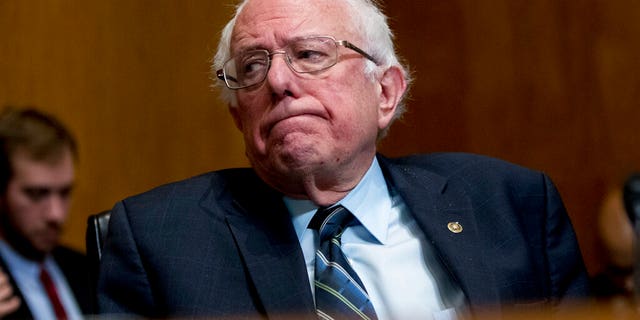California Democratic Sen. Kamala Harris, speaking during a town hall Monday night, vowed to eliminate all private health care insurance for approximately 150 million Americans if she is elected president.
Asked by CNN host Jake Tapper if people who like their current health care insurance could keep it under Harris' "Medicare for All" plan, Harris indicated they could not -- but that, in turn, they would experience health care without any delays.
Her statements appeared to be a full-throated call for single-payer health insurance, as opposed to merely expanding Medicare, and a dramatic embrace of the kind of proposals advocated by Vermont Independent Sen. Bernie Sanders.
"Well, listen, the idea is that everyone gets access to medical care. And you don't have to go through the process of going through an insurance company, having them give you approval, going through the paperwork, all of the delay that may require," Harris told Tapper.
"Who among us has not had that situation?" she continued. "Where you got to wait for approval, and the doctor says, 'Well I don't know if your insurance company is going to cover this.' Let's eliminate all of that. Let's move on."
President Barack Obama famously repeated several times throughout his presidency, in seeking to promote the Affordable Care Act (known as "ObamaCare"), that "If you like your health care plan, you can keep it."
SF MAYOR SAYS HE HAD AFFAIR WITH HARRIS, HELPED HER CAREER
The fact-checking website Politifact eventually named that statement its "Lie of the Year," noting that several million Americans received cancellation notices from their providers because of ObamaCare. Politifact also said the Obama administration was aware from the outset that its promise was unsustainable.
"Let's eliminate all of that. Let's move on."Harris appeared unwilling to follow Obama's example on Monday night, and instead stuck to her answer as she jokingly told Tapper to move onto the next question.
— California Democratic Sen. Kamala Harris
During a speech to officially launch her 2020 run earlier this month, Harris declared that "health care is a fundamental right" and vowed to serve her constituents by supporting "Medicare for All."
In August 2017, Harris became the first Senate Democrat to support Sanders' "Medicare for All" bill. The program, if implemented, would cost tens of trillions of dollars over a decade, experts say.
Several independent studies have specifically estimated that government spending on health care would surge by $25 trillion to $35 trillion or more in a 10-year period. A study released over the summer by the Mercatus Center at George Mason University, for example, estimated that Sanders' program would cost $32.6 trillion — $3.26 trillion per year — over a decade. By comparison, the federal budget proposal for the fiscal year 2019 was $4.4 trillion, the Congressional Budget Office states.

Analysis by The New York Times in 2017 showed at least 74 million Americans who currently benefit from Medicaid would potentially face higher taxes under "Medicare for All."
Sanders and New York Democratic Rep. Ocasio-Cortez have countered that while spending would necessarily increase in the short-term, fundamentally restructuring Medicare would ultimately yield sustained economic benefits by reducing administrative inefficiencies, cutting perscription drug costs, and encouraging young people to put more money into the economy.
But Charles Blahous, a senior strategist at the Mercatus Center and an author of the study, has said Ocasio-Cortez and Sanders would need to make unrealistic assumptions to come to that conclusion, because increased demand for healthcare would potentially offset any such administrative gains.
He criticized the two for making comments that "appear to reflect a misunderstanding of my study" after they cited his work as proof that 'Medicare for All' would, in fact, necessarily save money. Numerous fact-checkers, including The Washington Post and FactCheck, concluded that both liberal politicians had misread the paper's conclusions.
Speaking separately in response to a gun rights question at Monday's town hall, Harris urged a ban on "assault weapons," without defining the term.
"There is no reason in a civil society that we have assault weapons around communities that can kill babies and police officers," Harris said to applause. "Something like universal background checks -- it makes perfect sense that you might want to know before someone can buy a weapon that can kill another human being, you might want to know have they been convicted of a felony where they committed violence? That's just reasonable. You might want to know before they can buy that gun if a court has found them to be a danger to themselves or others. You just might want to know. That's reasonable."
Harris also defended her record as attorney general in California, saying she enforced the death penalty in the state despite opposing the practice. Likewise, she said she chose not to take a public position in 2015 on legislation to require her office to investigate all police-related fatal shootings because her office would write the law and enforce it.
The town hall event marked Harris' first public appearance in Iowa since announcing her candidacy last week.






















